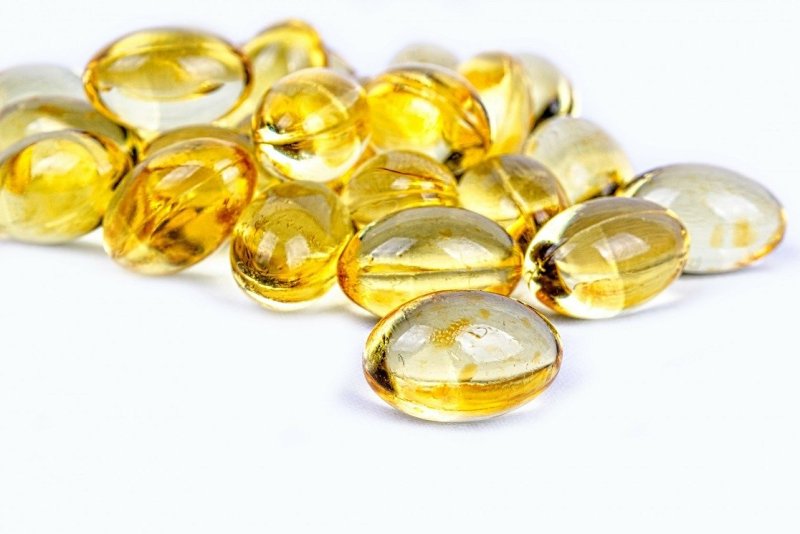Vitamin D supplements fail to lower risk of fractures in healthy adults, study says
Supplemental vitamin D did not decreased the chance of fractures in healthy U.S. older people, a substantial review has observed. Photograph by PublicDomainPictures/Pixabay
July 27 (UPI) — Vitamin D health supplements, even though greatly advisable for bone overall health, really don’t reduce the hazard of fractures in healthier more mature grownups, a significant study has discovered.
The assessment was prompted by inconsistent information on whether or not vitamin D dietary supplements lessen broken bones in the standard population, scientists at Brigham and Women’s Clinic, an affiliate of Harvard Clinical School in Boston, mentioned in a news launch.
Their new examine was posted Wednesday in the New England Journal of Medicine.
The researchers located that, when compared to a placebo, supplemental vitamin D3 of 2,000 intercontinental units for every day did not lessen full, non-vertebral or hip fractures, in accordance to the research.
Their investigation also showed no results from supplemental vitamin D3 on big osteoporotic, wrist or pelvic fractures — and no differences in the response to these supplements by guys and women.
The results also failed to propose any variations in the outcomes of supplemental vitamin D on fracture results according to race or ethnic team, overall body mass index or age.
Adult males taking part in the research were being 50 several years and older women have been 55 and more mature.
“Total, the final results from this huge medical demo do not assistance the use of vitamin D supplements to minimize fractures in usually nutritious U.S. adult males and females,” Dr. Meryl LeBoff, the study’s direct creator, stated in the release.
Having said that, the findings “do not apply to people with critical vitamin D deficiency or small bone mass and osteoporosis or older grownups in residential communities,”LeBoff, main of the Brigham endocrine division’s calcium and bone segment, told UPI in an e-mail.
She described the outcomes as “a minor astonishing” due to the fact the investigators hypothesized that supplemental vitamin D truly would cut down whole, non-spine and hip fractures.
Nonetheless, she mentioned, conflicting results from former randomized managed scientific tests “showed supplemental vitamin D resulted in a reward, no outcome or even harm on fracture threat.”
To test their personal speculation, the scientists carried out a significant randomized controlled demo as an ancillary study to the VITamin D and OmegA-3 Demo. Known as Critical, this is a nationwide scientific demo of 25,000-moreover adult men and women of all ages also led by investigators from Brigham and Women’s.
Crucial has been checking out whether or not having everyday nutritional supplements of vitamin D3 (2000 IU), omega-3 fatty acids or equally lowers the risk of producing cancer, coronary heart disease and stroke in people with out a prior historical past of these diseases.
From VITAL’s big pool, the scientists verified 1,991 incident fractures in 1,551 members above a median abide by-up period of time of 5.3 yrs.
According to LeBoff, most research contributors have been not located to be deficient in vitamin D and currently may have arrived at the vitamin D amount required for bone health and fitness.
The Countrywide Institutes of Health’s Place of work of Nutritional Supplements suggests most men and women meet up with at the very least some of their vitamin D desires via exposure to sunlight, but they take in less-than-recommended quantities of vitamin D.
Nationwide, an estimated 53.6 million men and women have osteoporosis, low bone mass or both, according to the study’s paper. Two million osteoporotic fractures occur every year, and that quantity is envisioned to best 3 million fractures for each yr by 2040.
Osteoporosis, and ensuing bone fragility, is most usually affiliated with insufficient calcium consumption, NIH states, but inadequate vitamin D ingestion contributes to the issue by lessening calcium absorption.
On the other hand, NIH broadly warns that far too significantly vitamin D from foodstuff, drinks and nutritional dietary supplements might be hazardous to health and fitness and implies everyday upper boundaries.
The investigators acknowledged their study’s limits, including the simple fact that they evaluated only one particular vitamin D dose and that the demo wasn’t created to check the outcomes of this kind of supplementation in people today who are vitamin D deficient.
LeBoff explained the Brigham researchers’ ongoing reports are “focusing on irrespective of whether totally free vitamin D degrees that we are measuring, or discrepancies in genetic variation in vitamin D absorption, or metabolism and other variables may well identify persons” who may possibly benefit from vitamin D nutritional supplements for musculoskeletal health.







